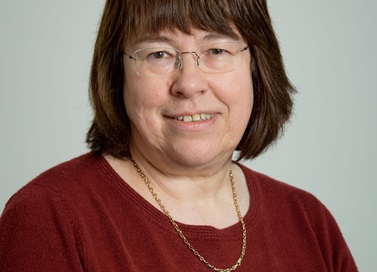Escape from Alcatraz
22 May, 2019
I am writing this in San Francisco where I am attending the American Psychiatric Association’s Annual Meeting.
I came here to talk about the Gatsby Wellcome Neuroscience project which as usual was really well received with interest from all over the world by those doing similar work.
Our team outing in San Francisco was a voyage to Alcatraz Island where we toured the old jail.
We heard the voices and saw the pictures of people who had been incarcerated there, it must have been a truly terrible place in its time. We also saw how two men escaped using spoons to dig tunnels, they were never heard of again and whether or not they survived remains a mystery.
Working with the Americans
Luckily for us we were able to catch a ferry back to the mainland without any problems in time for our joint session with the American Psychiatric Association about how mental health policy is developed.
Their systems are different from ours but the challenges are the same - how to develop policy that is consistent but also reactive when necessary, and that truly reflects what our members on the front line are experiencing in their daily practice.
We heard from Dr Bob Batterson, their Assembly speaker, who wore his special UK flag socks for the occasion. I’m happy to tell you that this session will be repeated at our International Congress and we are urgently trying to source some USA flag socks.
Congress in London: rapping with Louis Theroux?
Our own meeting, the International Congress, is approaching fast. Every year the programme gets better and we have a fantastic line up of speakers including the latest science, treatment updates and some cultural sessions.
I will have the privilege of chairing the talk by Louis Theroux. If you haven’t yet seen his documentaries about mental illness then please do watch them. The most recent one on perinatal illness, Mothers on the Edge, was outstanding.
He has a natural talent for interviewing and would make a great psychiatrist. I also need to compose my Presidential Address. Last year’s included some rap music, I’m pretty certain that was the first time this had happened and I’m not sure how I’m going to follow that...
On a more serious note
On a more serious note I was saddened to hear that eight years on from the Winterbourne View scandal a similar picture has emerged from another unit.
I know that you will be as horrified as I was to hear that some of the most vulnerable of our patients have allegedly been subjected to physical and psychological abuse by staff entrusted with their care.
As psychiatrists we must be vigilant in watching for anything that might suggest abuse. I don’t underestimate the difficulty in whistleblowing but if we suspect wrongdoing, we have no choice but to call it out. If you are in a position where whistleblowing is necessary we can provide confidential support via the College’s Psychiatrists Support Service.
Antidepressants: clarifying our position
Last year a group led by Professor Andrea Cipriani published a comprehensive systematic review and network meta-analysis that reinforced previous research that antidepressants are more effective than placebo in major depressive disorder.
This paper ignited a furious battle played out in both the media and the scientific literature between people who agreed with the findings and those who believe antidepressants are already over-prescribed. A theme that emerged was that for some people it can be very difficult to discontinue antidepressants.
I have spent time over the past year listening to patient groups and those who support them and there is no doubt in my mind that we need to do more to help. As a first step we are about to publish a College paper that clarifies our position on antidepressants and paves the way for further work.
Climate change: acting responsibly
Climate change has been in the news recently. We have a part to play in the national response to this issue because we have a social role, as doctors, to advocate for health issues.
Our patients are particularly at risk from the health impacts of climate change and the NHS has an enormous potential to reduce the UK’s carbon emissions.
The carbon footprint of the NHS is around 20 million tonnes per year. Most of this is clinically related such as medication, clinically related travel and medical equipment. On average, we as doctors contribute ten times the emissions in our work life than we do in our personal life.
We need to respond by acting responsibly in our day to day work. The College Sustainability Committee has developed a top ten list of things psychiatrists can do to improve the sustainability of their practice (PDF), please take a look and see if you can do something to help.


